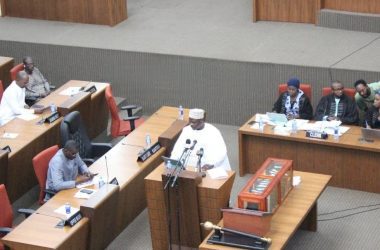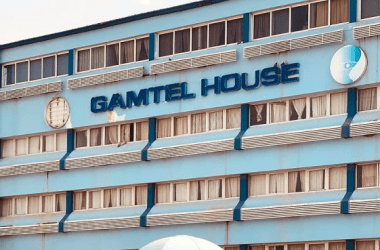Senegal said it will act swiftly to lower its budget deficit after an audit showing a weaker fiscal and debt position prompted Moody’s Ratings to downgrade the West African nation.
The company lowered Senegal’s long-term rating to B1 from Ba3 late on Friday after an audit launched by newly elected President Bassirou Diomaye Faye showed a budget deficit of 10% in 2023, almost double the 5.5% reported by the previous administration.
Senegal will implement “ambitious reforms to significantly reduce the deficit starting in 2025, and consolidate this reduction in the short term,” the Finance Ministry said in a statement. “A clear path will be set to lower the debt ratio.”
The West African nation’s debt was estimated at 83.7% of gross domestic product at the end of 2023, according to the government audit — about 10 percentage points higher than the previously published 73.6%.
That points to “significant past gaps in the accuracy of government accounts, and weaknesses in the effectiveness of budget management and fiscal policy,” Moody’s said. The elevated debt burden reduces Senegal’s “shock-absorption capacity” and leaves the government more susceptible to higher funding costs, it said.
Prime Minister Ousmane Sonko on Sept. 26 reiterated the government’s commitment to returning debt to below 70% of GDP.
Senegal spooked investors last month when it announced the probe of the previous government’s accounts, triggering a selloff of its dollar debt. They’ve since recovered on expectations that the nation’s longer-term economic prospects may provide support for its bonds.
The Senegalese authorities are in talks with the International Monetary Fund about corrective measures after the government audit. A disbursement from a $1.5 billion program following a June review looks increasingly unlikely to happen before the end of 2024.

Snap parliamentary elections scheduled for November in a bid by Faye to win support for his economic reforms in the opposition-dominated parliament will also dominate the authorities’ agenda.
Moody’s placed Senegal’s long-term rating on a follow-up review for possible further downgrade.
“We would downgrade Senegal’s rating if it became apparent that liquidity pressures on the government were to prove higher than currently expected,” it said.
The IMF recently revised Senegal’s 2024 economic-growth forecast to 6% from 7.1% projected in June, citing a widening fiscal gap, weak first half, and the potential delay to IMF funding.
(Bloomberg)




